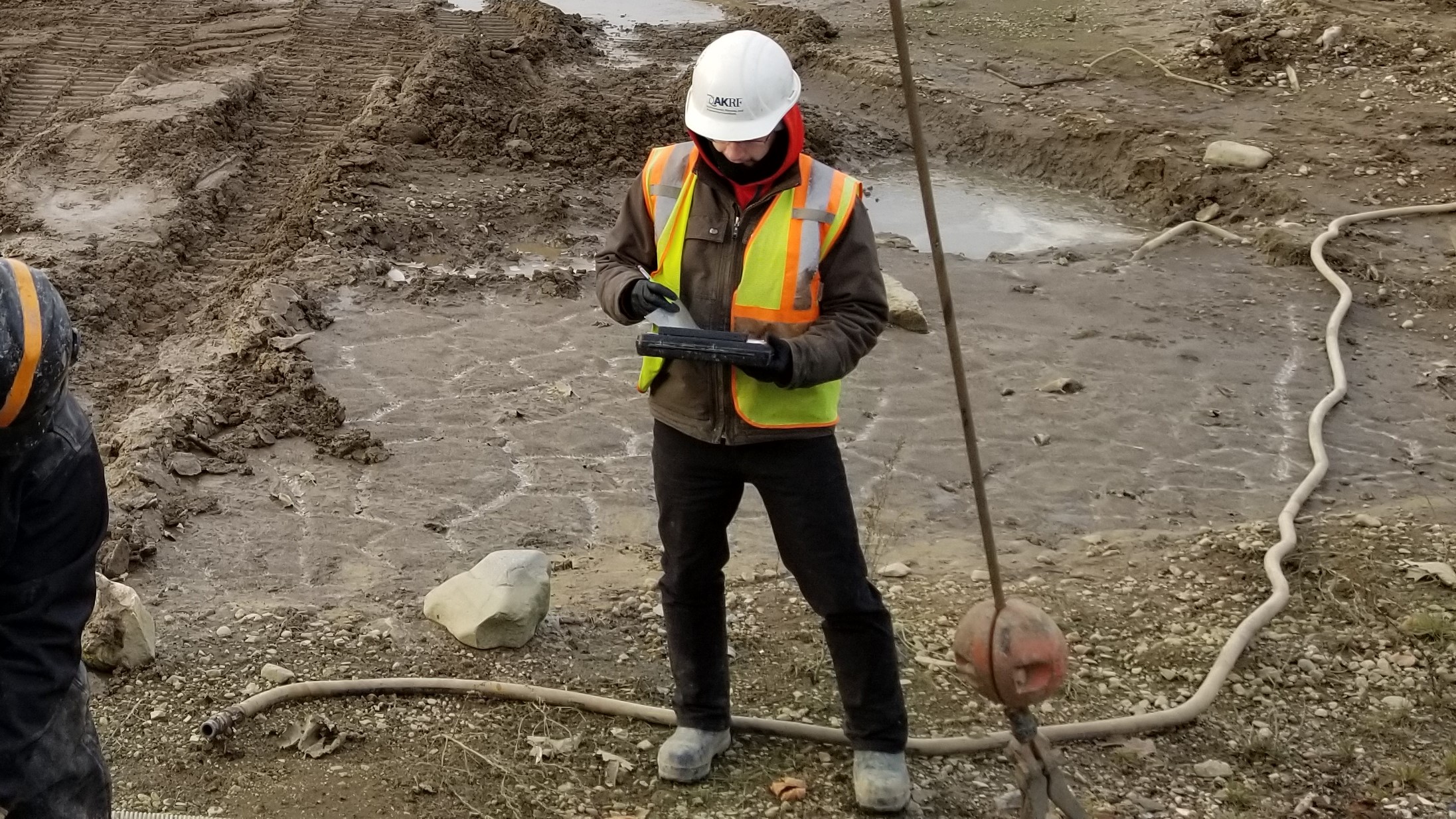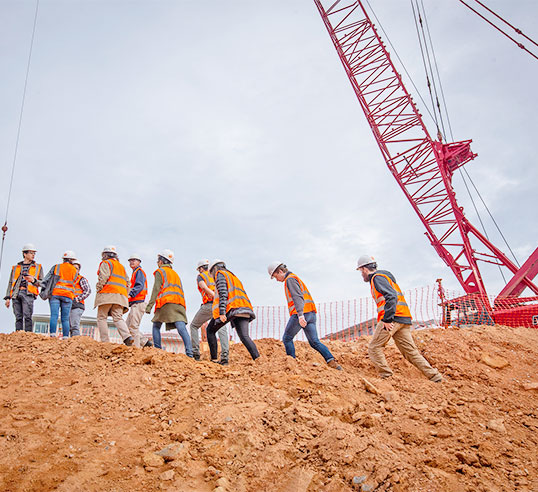Why the Geotechnical Industry Needs Ingenious Solutions Currently
Why the Geotechnical Industry Needs Ingenious Solutions Currently
Blog Article
A Thorough Summary of the Key Obligations of Geotechnical Designers in Site Characterization and Ground Renovation Techniques for Design Solutions
Geotechnical designers are integral to the successful implementation of engineering tasks, tasked with the essential responsibilities of website characterization and the application of ground renovation techniques. Their work involves a comprehensive analysis of subsurface problems, utilizing various testing approaches to determine soil and rock residential or commercial properties.
Role of Geotechnical Engineers
Geotechnical engineers play a crucial function in the design and building and construction of framework by evaluating the actions of dirt and rock underneath the surface - civil consulting engineers. Their duties include assessing subsurface problems to notify layout choices that guarantee architectural stability and security. By conducting comprehensive evaluations of soil residential properties, including shear compressibility, strength, and permeability, geotechnical engineers give crucial data that influences the choice of appropriate building materials and techniques
Along with examining soil mechanics, geotechnical designers are tasked with recognizing potential dangers such as landslides, sinkholes, and ground settlements. Their proficiency assists minimize threats connected with these geotechnical phenomena, consequently protecting both the environment and public security. They additionally collaborate carefully with other design disciplines, making sure that geotechnical factors to consider are integrated into total task layout.
Moreover, geotechnical designers participate in the assessment of existing structures, offering recommendations for retrofitting and repair services when required. Their comprehensive understanding of soil-structure interaction is necessary for the growth of lasting framework remedies. Overall, the function of geotechnical engineers is indispensable to the successful understanding of construction projects, ensuring they are safe, sturdy, and certified with regulative requirements.

Site Characterization Procedures
Reliable site characterization procedures are necessary for comprehending the subsurface conditions that affect project style and execution. Geotechnical engineers employ an organized approach to collect, evaluate, and analyze data relating to groundwater, soil, and rock qualities. This procedure starts with a comprehensive evaluation of existing literary works and historical website data, offering insights right into previous website conditions and potential obstacles.

Information evaluation follows fieldwork, where designers make use of geostatistical techniques to analyze searchings for and create geological versions. With thorough website characterization, geotechnical designers lay the groundwork for successful job execution, enhancing and minimizing unpredicted complications source allocation.
Dirt and Rock Testing Techniques
While comprehending subsurface problems is vital, the option of ideal soil and rock testing approaches is similarly essential for accurate evaluation and layout. Geotechnical engineers use a variety of testing methods to examine the physical and mechanical residential or commercial properties of dirt and rock products.
Research laboratory examinations, such as Atterberg limitations, grain dimension analysis, and unconfined compressive stamina examinations, supply important information on soil behavior under different wetness conditions and loading circumstances. These browse this site examinations assist determine soil classification and forecast settlement or shear strength features vital for structure style.
In-situ testing methods, consisting of Criterion Penetration Tests (SPT), Cone Infiltration Tests (CPT), and stress meter tests, permit engineers to gather information straight from the ground. These techniques supply important insights into the soil's thickness, uniformity, and stratification without the requirement for considerable sampling.
Rock testing commonly involves core sampling and research laboratory analysis to evaluate properties like uniaxial compressive toughness and rock top quality classification (RQD) Together, these dirt and rock screening approaches make it possible for geotechnical designers to make educated choices regarding site-specific difficulties, guaranteeing the security and stability of engineering remedies.
Ground Renovation Strategies
Ground enhancement strategies are necessary for enhancing the engineering residential properties of soil, consequently increasing its load-bearing capacity and reducing settlement. These approaches are essential in dealing with challenges provided by troublesome or weak soils, which can substantially affect the stability and longevity of structures.
Different ground enhancement techniques are used, consisting of compaction, grouting, and dirt stablizing. Grouting, on the various other hand, involves injecting a fluid material right into the ground to fill voids and enhance soil cohesion.
Soil stablizing incorporates a variety of methods, from chemical additives to mechanical therapies, focused on boosting the dirt's resistance to erosion and deformation. Strategies such as lime stablizing or concrete blending alter the residential or commercial properties of the soil at a particle level, boosting its total efficiency.
Value of Geotechnical Analyses
Geotechnical analyses play a crucial role in the planning and layout of engineering tasks, as they supply essential information concerning the subsurface conditions. Understanding dirt properties, rock developments, groundwater levels, and potential geohazards is crucial for guaranteeing the stability and safety of frameworks. These assessments enable engineers to make informed choices regarding site option, design specifications, and building and construction methodologies.
The value of geotechnical analyses expands beyond preliminary task stages; they are critical in danger administration and cost effectiveness. By identifying possible problems early, such as soil negotiation, slope instability, or too much groundwater, designers can devise appropriate reduction techniques, reducing the likelihood of expensive delays and structural failings. These evaluations sustain conformity with regulatory needs and enhance the sustainability of engineering methods.

Verdict
In final thought, geotechnical designers are crucial to ensuring the safety and security and stability of engineering projects via detailed website characterization and ground enhancement methods. geo tech engineering. Their systematic technique to assessing subsurface problems, integrated with their suggestions for reliable ground modification, substantially enhances soil homes and load-bearing ability. The know-how of geotechnical engineers not only helps with enlightened job preparation but additionally guarantees conformity with regulations and promotes reliable communication amongst stakeholders, inevitably adding to successful engineering end results
Geotechnical engineers play a critical function in the style and building of infrastructure by evaluating the habits of dirt and rock under the surface area. By carrying out comprehensive evaluations of soil residential or commercial properties, including shear compressibility, strength, and permeability, geotechnical designers provide crucial information that influences the option of proper building and construction materials and strategies.
In enhancement to assessing dirt auto mechanics, geotechnical engineers are tasked with determining potential threats such as landslides, sinkholes, and ground negotiations. Geotechnical engineers utilize an organized strategy to gather, evaluate, and interpret information regarding soil, rock, and groundwater attributes. By determining potential issues early, such as soil negotiation, slope instability, or excessive groundwater, engineers can develop suitable mitigation strategies, reducing the probability of expensive hold-ups and architectural failures.
Report this page